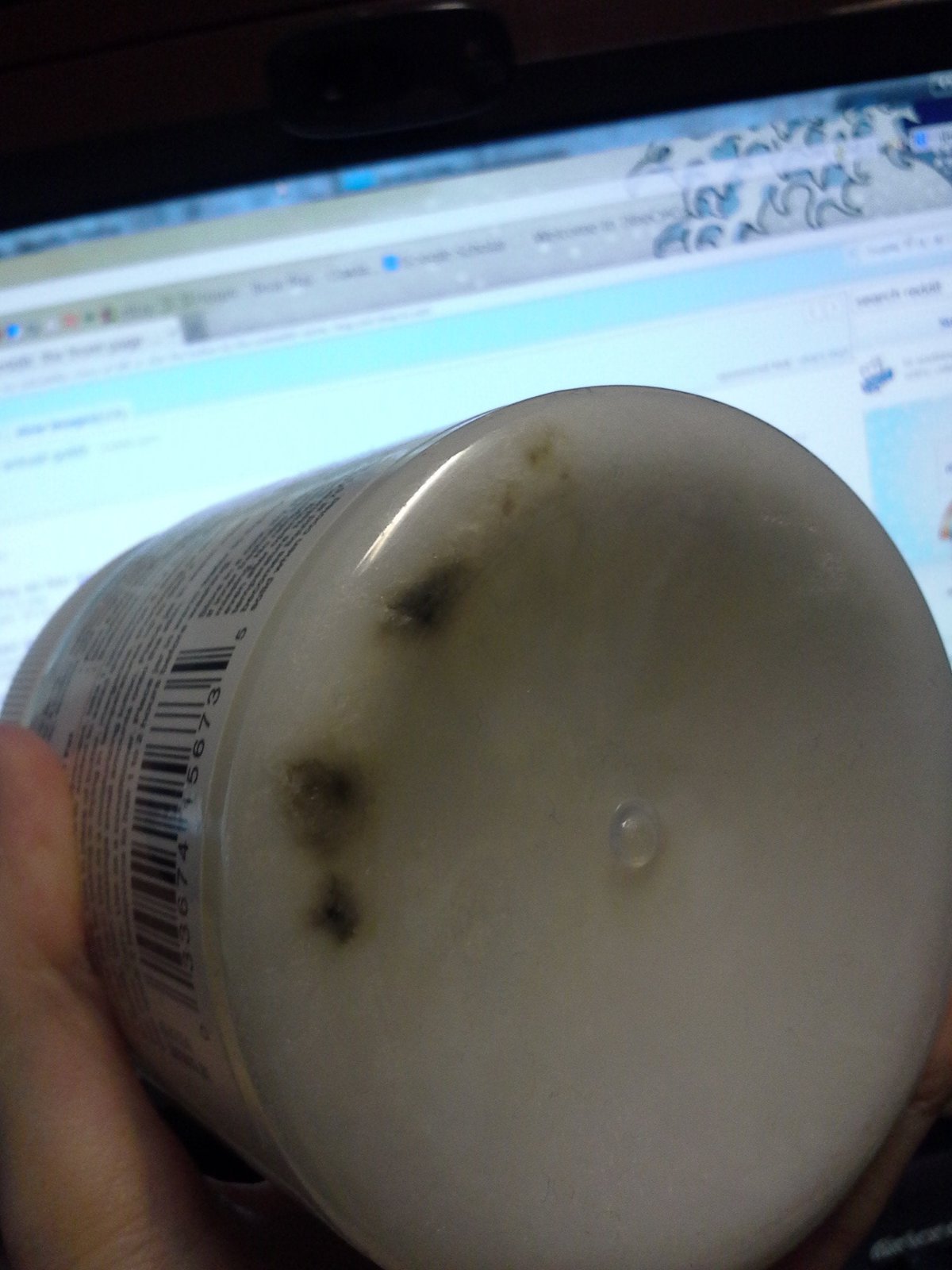Coconut oil is a popular cooking oil, but it can also be used for other purposes. Some people use it as a skin moisturizer, while others use it to remove makeup. Coconut oil can also be used as a hair treatment or scalp massage.
But what about using coconut oil for mold? Can coconut oil mold?
The answer is yes, coconut oil can mold.
But it’s not the same as other types of mold. Coconut oil mold is harmless and won’t make you sick.
When it comes to coconut oil, there are a lot of different opinions out there. Some people swear by it and use it for everything, while others think it’s a total waste of money. But one thing that everyone can agree on is that coconut oil can go bad…and when it does, it can get moldy.
If you’ve ever found a tub of coconut oil that has white spots or streaks in it, that’s mold. And while it might not be harmful to consume small amounts of mold (like the kind you find on bread), eating large quantities of moldy food can make you sick. So if your coconut oil has gone bad, it’s best to throw it out.
But how do you prevent your coconut oil from going bad in the first place? The key is to store it properly. Coconut oil should be stored in a cool, dark place like your pantry or cupboard.
And make sure the lid is tightly sealed so that no air can get in and cause the oil to go rancid. If you follow these simple tips, your coconut oil should last for several months without any problems.
What Does Mold on Coconut Oil Look Like
If you’re like me, you love using coconut oil for just about everything. Whether you’re cooking with it, using it as a skin moisturizer, or even using it as a hair treatment, coconut oil is an incredibly versatile product. However, one thing that can be tricky with coconut oil is knowing when it’s gone bad.
After all, unlike other oils which can simply turn rancid, coconut oil can also develop mold.
So what does mold on coconut oil look like? Well, it can vary somewhat in appearance depending on the type of mold that’s growing on it.
However, generally speaking, mold on coconut oil will appear as small black or greenish-black dots on the surface of the oil. If you see this type of growth on your coconut oil, it’s best to throw it out and get a new jar.
Of course, not all types of mold are easy to spot with the naked eye.
So if you’re unsure whether or not your coconut oil has developed any mold growth, give it a sniff test. If the oil smells sour or off in any way, then chances are there is some mold present and you should discard the product.
While finding mold on your beloved jar of coconut oil can be disheartening, luckily there are some simple ways to prevent this from happening in the first place.
First and foremost, make sure to always store your coconut oil in a cool and dark place – such as a pantry cabinet – since heat and light can cause the formation of mold spores.

Credit: www.myrecipes.com
How Do You Know If Coconut Oil Goes Bad?
Coconut oil is a highly stable oil, meaning it has a long shelf life and does not go bad easily. However, there are a few ways to tell if your coconut oil has gone bad.
The first way to tell if your coconut oil has gone bad is by its appearance.
If the oil is cloudy or has changed colors, it is likely that it has gone bad. Another way to tell if your coconut oil has gone bad is by its smell. If the oil smells rancid or off, it is likely that it has gone bad.
Finally, you can tell if your coconut oil has gone bad by tasting it. If the taste is off or the texture is strange, it is likely that the oil has gone bad.
If you suspect that your coconut oil has gone bad, it is best to throw it out and start fresh with a new jar.
What Causes Mold in Coconut Oil?
When coconut oil goes bad, it’s usually because of one of two reasons: either the oil has been exposed to oxygen or it’s gone rancid.
If your coconut oil has been sitting out on the counter for a while, it’s likely that it has been exposed to oxygen and has developed mold. To prevent this from happening, be sure to store your coconut oil in a cool, dark place.
If you do find mold growing on your coconut oil, discard it immediately.
Rancidification is another common cause of moldy coconut oil. This happens when the oils in the coconut start to break down and form new compounds.
The process is accelerated by heat and light exposure, so be sure to keep your coconut oil stored in a dark place. If you notice an off smell or taste coming from your coconut oil, it’s best to throw it out.
What Does Spoiled Coconut Oil Look Like?
If you’ve ever opened up a bottle of coconut oil and noticed that it has a strong, unpleasant odor, then you know that it has gone bad. Spoiled coconut oil will also have a dark brown or yellow color. It may also be lumpy or have a watery consistency.
If your coconut oil doesn’t smell or look right, don’t use it.
Why is There Black Stuff in My Coconut Oil?
If you’ve ever scooped out coconut oil and noticed some black flecks in the otherwise white-ish oil, you may have been wondering what that stuff is. Is it mold? Spoiled oil?
Or something else entirely?
Contrary to what you might think, those black specks are actually completely normal! They’re caused by the presence of natural compounds called polyphenols, which are found in both coconuts and virgin coconut oil.
Polyphenols are antioxidants that can help protect against damage from free radicals, UV rays, and other environmental stressors. They’re also responsible for giving coconut its characteristic nutty flavor and aroma.
While there’s nothing wrong with having polyphenols in your coconut oil, they can sometimes cause the oil to go rancid faster than it otherwise would.
That’s why it’s important to store your coconut oil in a cool, dark place away from direct sunlight or heat exposure.
If you do find yourself with black specs in your coconut oil, don’t worry – the oil is still perfectly safe to use. Just give it a sniff to make sure there’s no off odor, then enjoy!
HOW? Coconut OIL is made?(With English Subtitles) Wood Pressed Oil | Chekku Ennai | Factory Explorer
Conclusion
Coconut oil is a popular ingredient in many household products, but can it go bad? Turns out, coconut oil can mold if it’s not stored properly. Keep your coconut oil in a cool, dark place to prevent it from going rancid.
If you do find mold on your coconut oil, discard it immediately.

